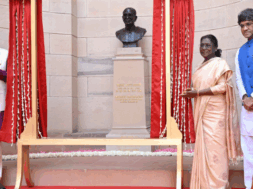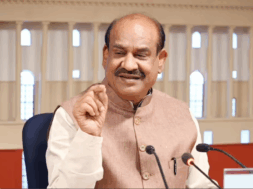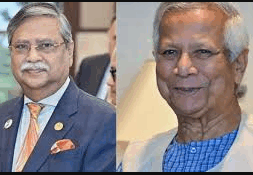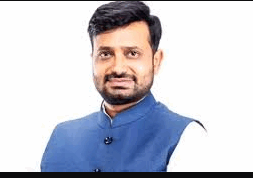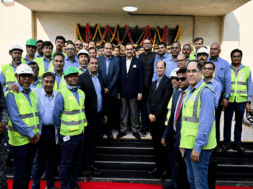
Manas Dasgupta
NEW DELHI, July 12: Even as the Supreme Court on Friday granted interim bail to the Delhi chief minister Arvind Kejriwal in the money laundering case filed by the Enforcement Directorate, Delhi’s Rouse Avenue Court extended his judicial custody till July 25 in the alleged corruption case linked to the same Delhi liquor policy scam being investigated by the Central Bureau of Investigation (CBI).
Despite being granted bail, Mr Kejriwal will still be in the Tihar jail unless he is granted bail separately for the CBI case. In the Rouse Avenue Court, Mr Kejriwal was produced through video conferencing before Special Judge Kaveri Baweja. He appeared in connection with the CBI and ED cases on the expiry of his judicial custody.
A bench of Justices Sanjiv Khanna and Dipankar Datta delivered the judgment. Mr Kejriwal has suffered incarceration for over 90 days, the court said while granting him interim bail in excise policy case filed by ED.
As part of the conditions laid down by the court, the AAP boss cannot visit his office, or the Delhi Secretariat, during his period of release. The Chief Minister also cannot “sign official files unless it is required and necessary for obtaining clearance / approval of the Lieutenant Governor of Delhi.”
Mr Kejriwal must also furnish bail bonds worth ₹ 50,000 and a surety of the same amount. He has also been directed, as is protocol in such instances, to “not interact with any of the witnesses and / or have access to any official files connected with the case.”
The judgment on Friday further referred to a larger Bench questions raised by Mr Kejriwal on the need and necessity to arrest him under the Prevention of Money Laundering Act (PMLA).
While noting that a need for interrogation cannot be the sole ground for arrest under Section 19 of the PMLA, Justice Khanna said the larger Bench ought to examine and lay down specific parameters for arrest under the PMLA.
The court, in this regard, noted that arrest, currently under the PMLA, was initiated on the “subjective opinion” of the investigating officer unlike the grant of statutory bail under Section 45 of the Act which involved discretion of a court of law. One of the questions referred to the larger Bench include whether an accused could raise the “need and necessity of arrest” as a separate ground to quash the arrest.
On the question of Mr Kejriwal being forced to submit his resignation as the chief minister, the apex court again refused to issue any direction and suggested that Mr Kejriwal himself should take a call whether he should continue as the chief minister despite remaining behind the bar.
The underscored that Mr Kejriwal occupies an office of influence as well as constitutional importance. The court cannot direct an elected leader to step down from the office of a “functional” Chief Minister, Justice Khanna said. It would be better if Mr Kejriwal himself made a decision, Justice Khanna noted.
This is the second time the Supreme Court granted Mr Kejriwal interim bail. The first instance was on May 10, allowing the national convenor of the Aam Aadmi Party to campaign in the Lok Sabha elections. Mr Kejriwal had surrendered on June 2 as per the condition laid down by the court in granting bail.
Justice Khanna said Mr Kejriwal deserved interim bail. His rights of life and liberty were “sacrosanct.” He has been incarcerated for over 90 days. The judgment came on a petition filed by Mr Kejriwal against his arrest by the Directorate of Enforcement (ED) under the PMLA on March 21. The Bench had reserved the petition for judgment on May 21 while allowing Mr Kejriwal to separately approach the trial for regular bail under Section 45 of the PMLA.
Subsequently, a Special Court granted Mr Kejriwal statutory bail under Section 45 of the PMLA on June 20. Bail under PMLA is applied for in the Special Court under Section 45 of the Act. An accused seeking bail has to satisfy the stringent twin conditions that he is prima facie innocent and is not likely to commit an offence in the future. But the Delhi High Court stayed the bail on June 25.
The ED has alleged Mr Kejriwal’s involvement in the channeling of ₹45 crore in “kickbacks” out of a ₹ 100 crore in “bribe” to AAP coffers to campaign for the Goa Assembly elections in 2022. The agency has claimed the kickbacks were sent via hawala operators and Mr Kejriwal was the “kingpin” behind the scam.
Senior advocate AM Singhvi, for Mr Kejriwal, has countered these allegations, saying the ED had nothing to show that any money came to his client or was used in the Goa election campaign. He submitted that Mr Kejriwal’s arrest came a year-and-half after the ED registered a case in August 2023. It had no new evidence against Mr Kejriwal, except “zero-weight” statements recorded from accused-turned-approvers till July last year.
Mr Singhvi had asked why the ED had waited from July 2023 till March 2024 to arrest Mr Kejriwal. The senior lawyer had accused the ED of suppressing evidence against Mr Kejriwal when his rights of life and liberty were at stake.
The AAP welcomed the Supreme Court ruling saying “satyamev jayate” (Truth alone triumphs). “Satyamev Jayate (truth alone triumphs)”, the party posted on X in Hindi along with a picture of Mr Kejriwal holding the national flag.
But the BJP interpreted the apex court ruling differently claiming that its order was an admission of the ED charge that he was the “kingpin” in the money laundering case and had also given a hint to Mr Kejriwal that it was high time for him to resign as the chief minister.
Since his arrest Mr Kejriwal has faced multiple demands to resign, usually from leaders and workers of the BJP who have protested, frequently and vociferously. His party repeatedly rubbished those demands, pointing out the Chief Minister had not been convicted and claimed the charges against him were wholly untrue and unsubstantiated.
There were also multiple PILs, or public interest petitions, filed in both the Supreme Court and Delhi High Court, seeking directions to force Mr Kejriwal to stand down. In May the top court junked one such plea, ruling it had “no legal merit” and left to the centre to take a decision on sacking him if it so desired.




